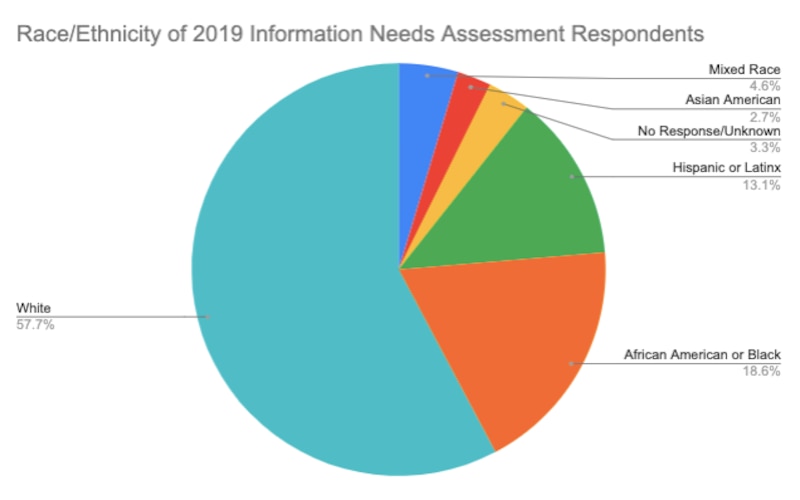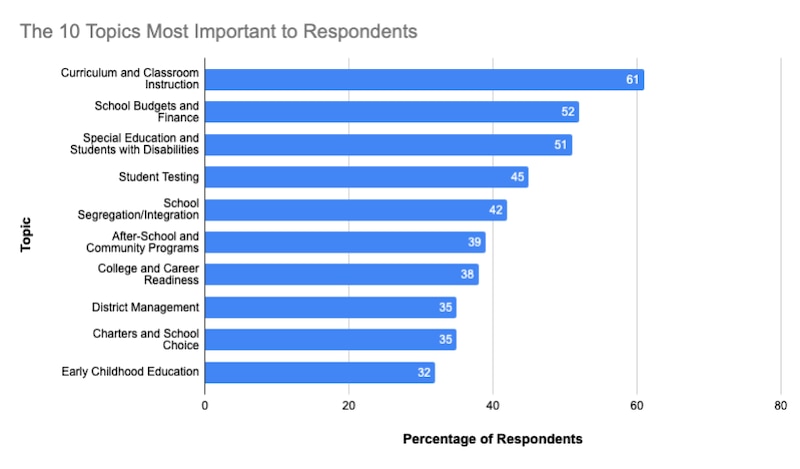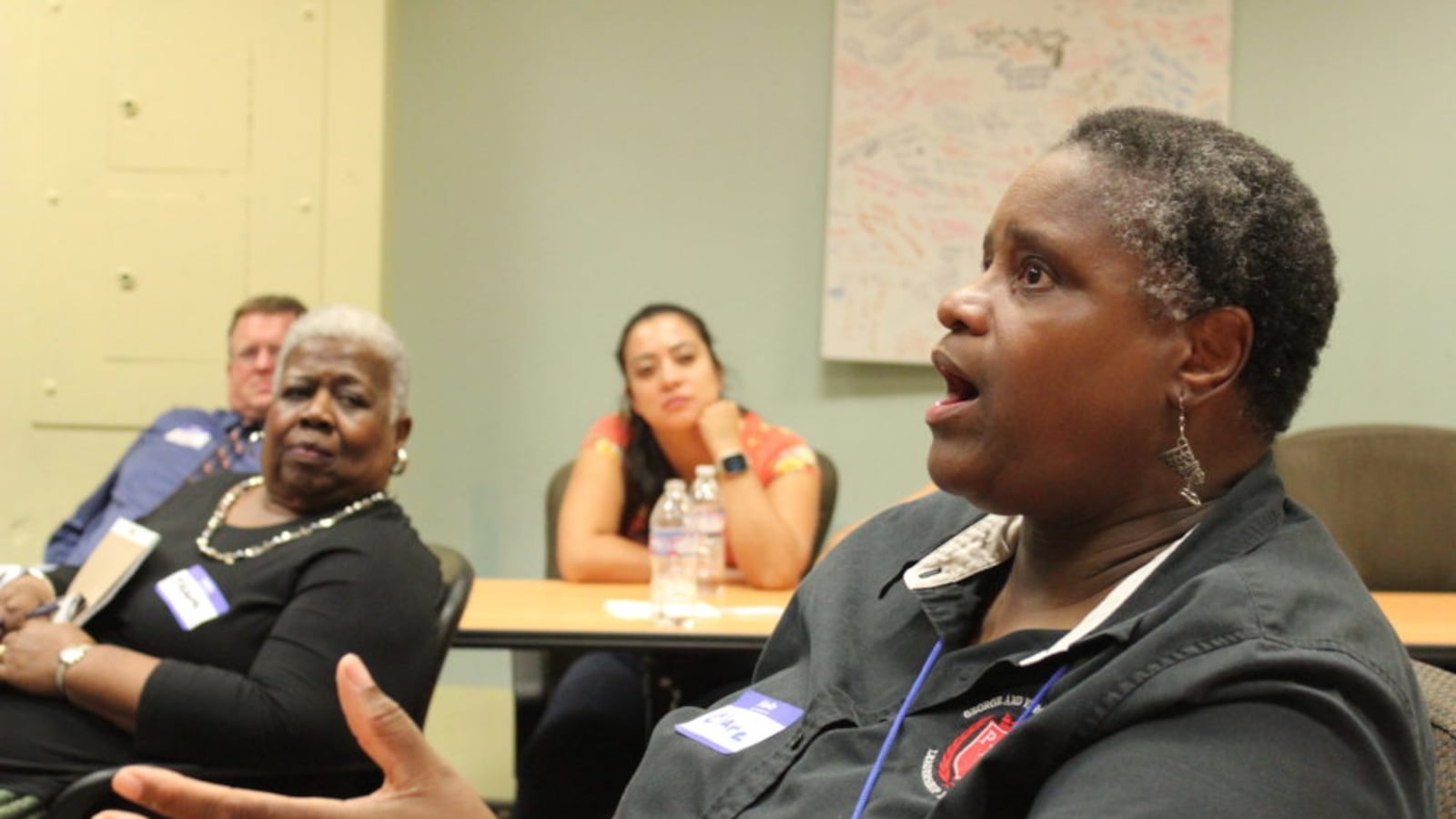“Show your work.” I remember that phrase primarily from math classes throughout my school career. Since I joined Chalkbeat almost a year ago, that phrase has taken on more meaning as I work with our network of local bureaus to take our journalism deeper into the communities we serve.
In our day-to-day reporting, we show our work by embedding a key source document, explaining data analysis on a story, or posting a Twitter thread with behind-the-scenes insight. For my part as engagement editor, showing our work means supporting what we call the feedback loop: the continuous cycle of soliciting community input before, during, and after our reporting on essential education stories, and reflecting what we hear back to the community.
We do this throughout the year using reader callouts — Google Forms that typically ask about a particular topic or news event, like education funding or an upcoming teachers rally — and, when appropriate, we publish what we heard.
But with our annual Listening Tour, we have more in-depth conversations. Now that the 2019 tour has wrapped up, I want to take a moment to show our work — both the work that went into the tour and the steps we’re taking to incorporate what we learned into our journalism.
What we did
In the Listening Tour’s second year, we narrowed our focus to parents in our bureau communities — Chicago, Denver, Detroit, Indianapolis, Memphis, Newark, and New York. As we looked at past audience survey results, we saw an opportunity to serve parents better — folks without a professional tie to education who need to be able to make informed decisions about their children’s futures.
Our bureaus organized in-person listening sessions around the start of the school year. We weren’t aiming for ComicCon-sized crowds: We designed them for between 12 and 40 attendees to foster more intimate conversations.
Colorado organized a conversation around school choice, while Indiana let attendees talk more broadly about what was and wasn’t working in Indianapolis schools. New York and Newark both centered their events around special education; Tennessee talked with parents about literacy from pre-K through third grade. Because Chicago had already done strong engagement work with parents, the bureau organized a happy hour and story slam for teachers to find out what issues were front-of-mind for them. (Detroit had planned to talk to parents about school facility issues, but at the last minute, the event was cancelled due to logistical issues.)
To reach more parents than those who could attend our in-person events, we also designed an online information needs assessment. Again using Google Forms, with versions in Spanish and English, we asked parents in or near each of these cities about how they got their news, what information is hard for them to access, and what topics they were most interested in seeing us cover. The surveys were online from July through the end of September, and in October, we chose one lucky parent from each city to receive a $50 gift card — we know it takes time to answer these questions thoughtfully, and we’re grateful to those who did.
The results
- Nearly 160 people showed up to our listening sessions.
- On average, 50% of attendees were parents.
- More than one-quarter were new to Chalkbeat.
- Bureaus came away with more than 40 story ideas, drawing from the most pronounced areas of interest and biggest concerns of the parents and teachers they spoke with.
As for the information needs assessments, we received 452 responses over the course of those three months, 90% of the way to our overall target of 500. About 40% of respondents identified as people of color; like many news organizations, Chalkbeat is working to diversify readership and make sure we’re hearing from a representative sample of the communities we serve. While we’ve made progress, in part by partnering with local organizations on outreach, we have more work to do in this regard.

The top three topics of interest for survey respondents:
- Curriculum and classroom instruction
- School budgets and finance
- Special education and students with disabilities

Many of these relate to additional topics parents indicated interest in across our bureau locations:
- What’s working in schools when it comes to teaching methods, equity, and mental health
- Transparency around decision-making, such as school finance, state and local legislation, and school board operations
- Resources to help parents make decisions and advocate for their children
- Learning trajectories for students not bound for college
What’s next
Our bureaus shared more details about what stood out to them during their listening sessions — read more from Tennessee, Colorado, and Newark. Now we’re starting the work of applying that input to our reporting. Our managing editors for local news, Eric Gorski and Carrie Melago, are working with bureaus to plot stories and projects that will cover some of these topics as they relate to local schools.
And along the way, it’s on us to show our work. On this page, we’ll be keeping track of the stories that emerge. We’ve already gotten started — see this school-tour guide from Colorado’s Melanie Asmar, and this report from Newark’s Patrick Wall and Devna Bose on the city’s failures to meet special education requirements. There’s more to come, so I hope you’ll read along and share your ideas when our next Listening Tour kicks into gear in 2020.

Following our 2019 Listening Tour, Chalkbeat bureaus will continue tackling topics raised during in-person listening sessions and responses to our online information needs assessment. See those articles inspired by community input here.


